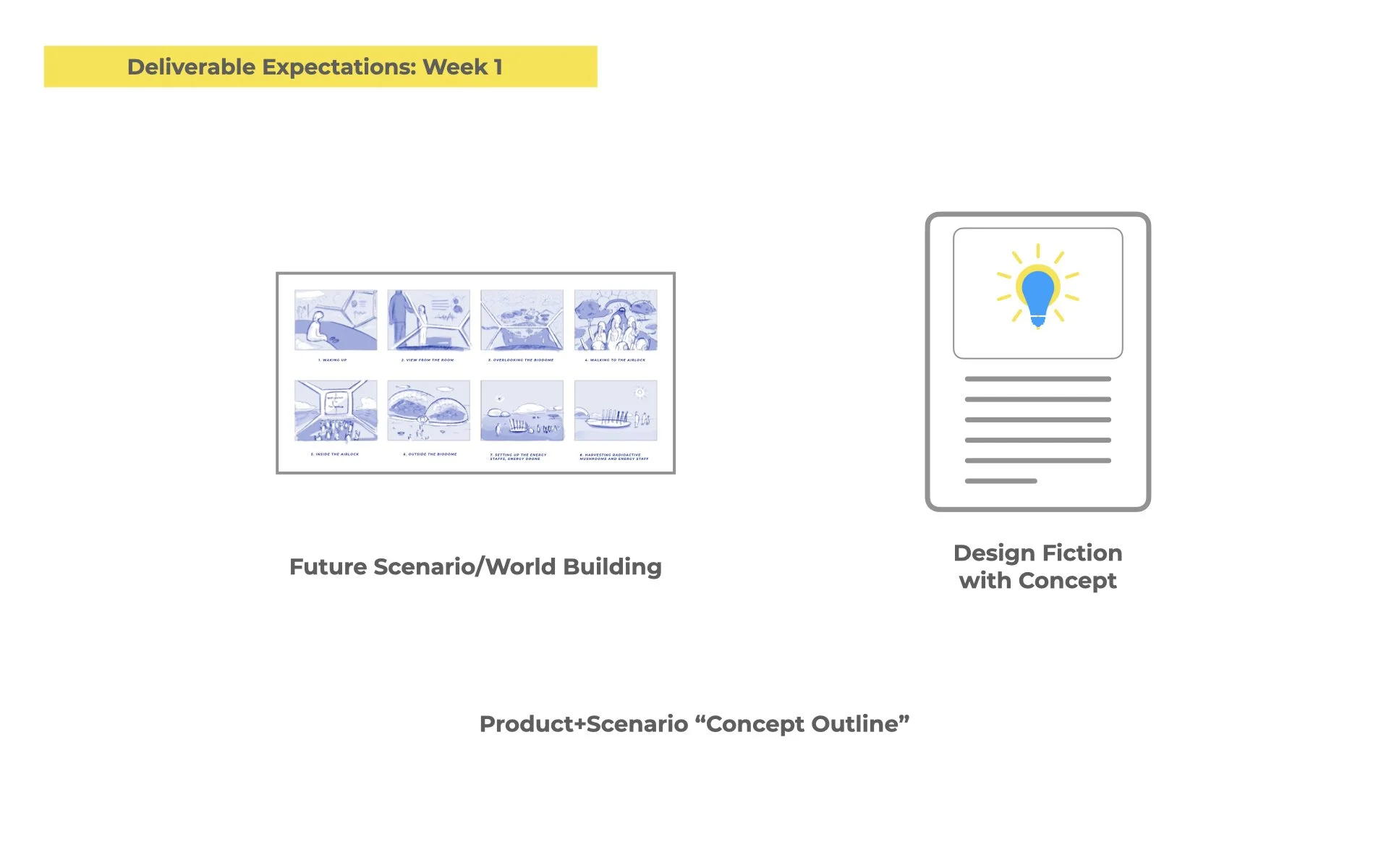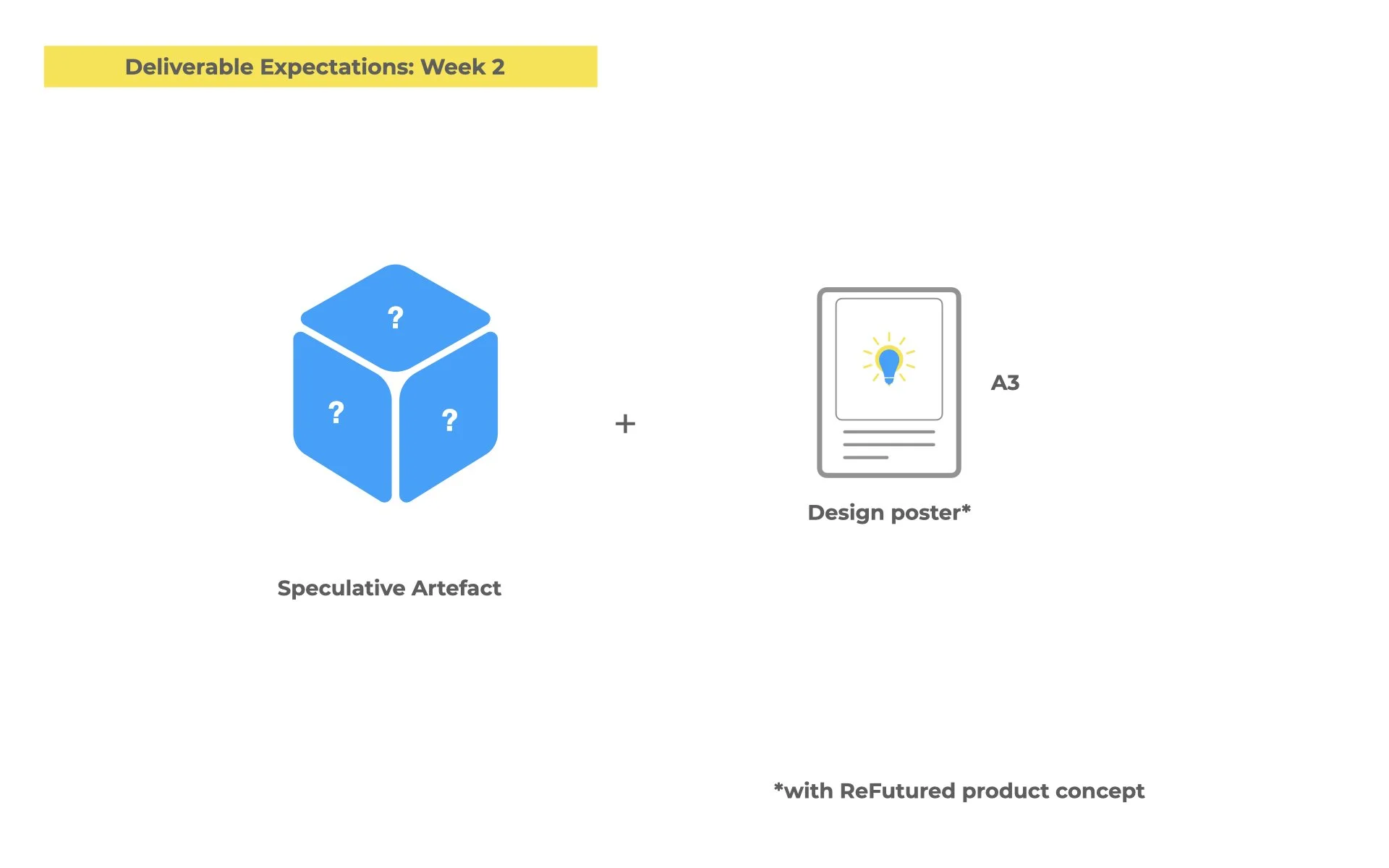design4futures
Course Developed at The Oslo School of Architecture and Design
Module Description
This module had a broad emphasis on reimagining futures through and by design. It brought together design students at various levels in their education to reclaim and envision critical alternatives to the real-world challenges posed by the ever urgent planetary crisis.
These engagements spanned across many schools and student bodies, in Norway, China and India. Furthermore, these arrangements also resulted in researchers being actively engaged with the pedagogical activities and thus feeding back into research outcomes.
This Module has mostly focussed on two approaches, one a critical reading Masters Elective course Rethinking Development and Sustainable Design/Futures at AHO running since 2016 and the other a 2 week workshop called ReFuturing Studio with design students in Norway, China and India.
1. Rethinking Development and Sustainable Design/Futures (RDSD/RDSF) Elective Course at AHO (2016-onwards)
The elective course “Rethinking Development and Sustainable Futures” (formerly Rethinking Development and Sustainable Design) is a reading course that takes a critical stance by scrutinizing how the fundamental concepts of “Development” and “Sustainability” are understood. With growing concerns of climate change, loss of ecosystems, forced migration, urbanisation, and increasing social and economic disparities, these are concepts of global importance to the fields of design, architecture, urbanism, and landscape architecture; concepts that are partially interrelated, sometimes conflicting, and often prey to sectoral or profession-based interpretations. In this course, we will be stepping outside our “defined” professions to critically rethink the future of both development and sustainability through interdisciplinary readings, discussions, and writing. The goal is to reveal and deliberate the kind of paradigms such assumed conceptions and discourses typically hold and what they try to sustain. The course will also explore if there are other alternatives to be found that also could be engaged with, promoted, and acted upon. Informed by these dialogues, Students will produce articles or essays based on their reading on a topic of interest. They will also be tasked with critiquing each other's texts as a part of the production.
Course Outcome:
The content of the class spans from practical work with texts to lectures, discussions, student presentations, and the compilation of a final reader (seen below). The reader typically ranges from students writing book reviews based on their readings and other critical explorations. Each year the reader varies in style and approach.





2. ReFuturing Studio Workshop (2019-onwards)
Designing for long term sustainability, in the context of climate breakdown means imagining futures that doesn’t yet exist. To ‘re-future’, is to re-open potential futures that have been taken away from us. This workshop explores ‘re-futuring’ through storytelling and designed artefacts. It examines notions of ‘development’ in a speculative framework that build “what-if” scenarios that ‘short circuit’ today’s hegemonic ‘development agenda’. In the shadow of the present climate emergency, the workshop will mix short lectures with hands-on design doing to explore product- and film designers’ capacity to together imagine and convey future worlds with ‘enabling speculative products’ that can inspire and support climate actions today. The workshop's focus and activities were centred around a travelling workshop course, ReFuturing Studio, a workshop module designed to engage critically with these issues applying their design skills to come up with speculative design fictions.
This workshop is an attempt to engage design students to practise their skills beyond Business as Usual frameworks of industrial economy into a much larger sphere of the entire biosphere. To explore what kinds of futures potentially are possible given new preconditions where violent extraction of resources, especially fossil fuels, is obsolete. These changes, bound by the present global notions of the ‘development’ paradigm implies that the so called ‘developed’ countries’, might need to change the most as climate breakdown challenges the very foundations of their ‘development’ paradigm. In this context the students are both expected to critically examine the role of their own disciplines in shaping the future and having done so, create better, more resilient futures in the face of climate breakdown. It gives a chance for young designers to creatively open up the solution space and their skillsets to engage in a speculative design framework towards climate action through a form of mind-body learning which means imagining and reimagining alternative futures.
Workshop Requirement:
Standard Design workshop equipment for example:
White boards, whiteboard markers, Paper, Sketching tools, Colors, Tables, cutting boards, hot glue, cutting tools, Cameras for filmmaking, Tapes etc.
Course Presentations (PDF):
Week 1 Deliverables:
Week 2Deliverables:
Workshop Outcomes:
By the end of the Workshop the students produce speculative artefacts along with their contextual future scenarios and design fictions. The students gain an increased knowledge and critical awareness about futures, climate breakdown and be able to articulate a response to these issues as creative designers in their own disciplines.
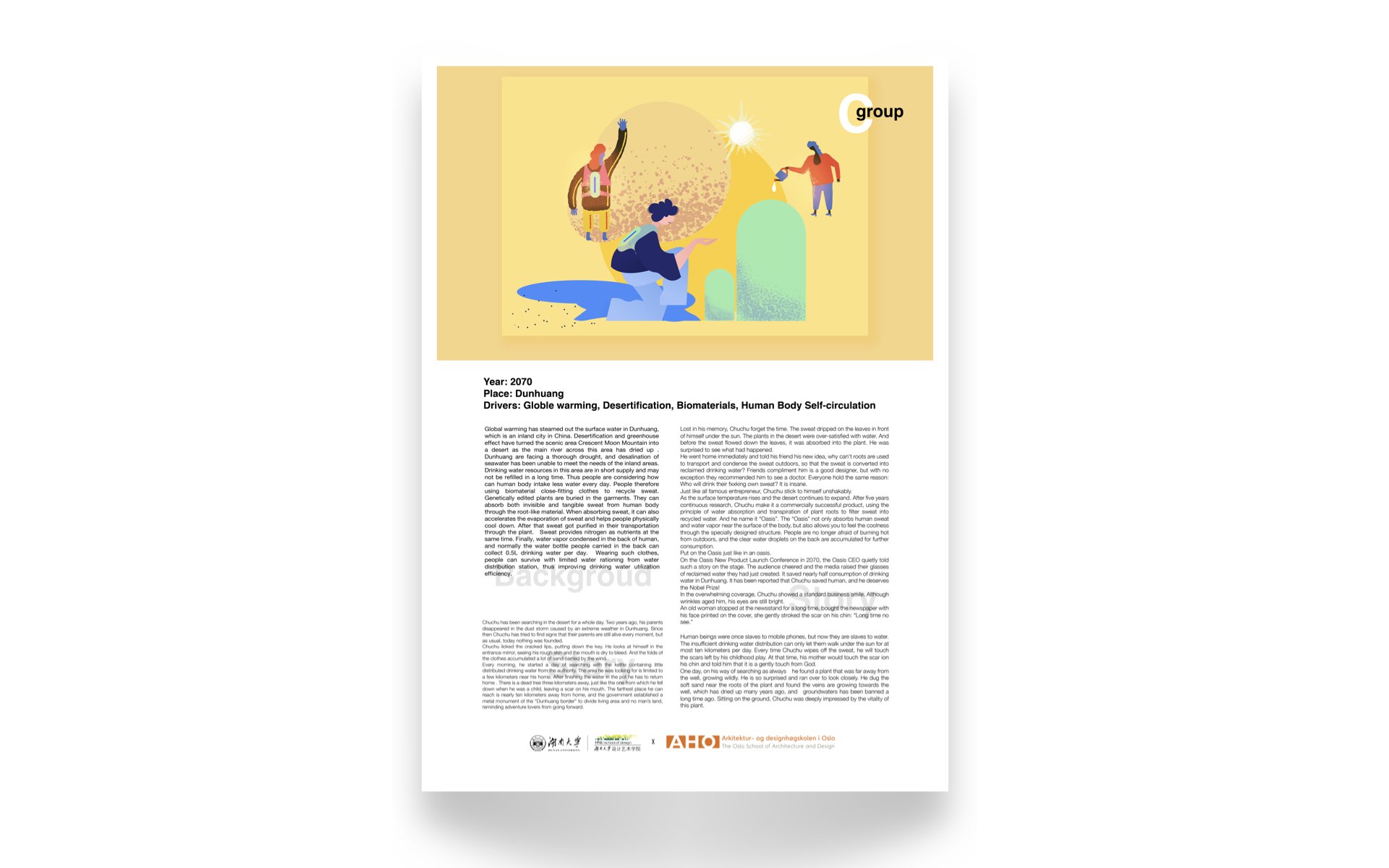
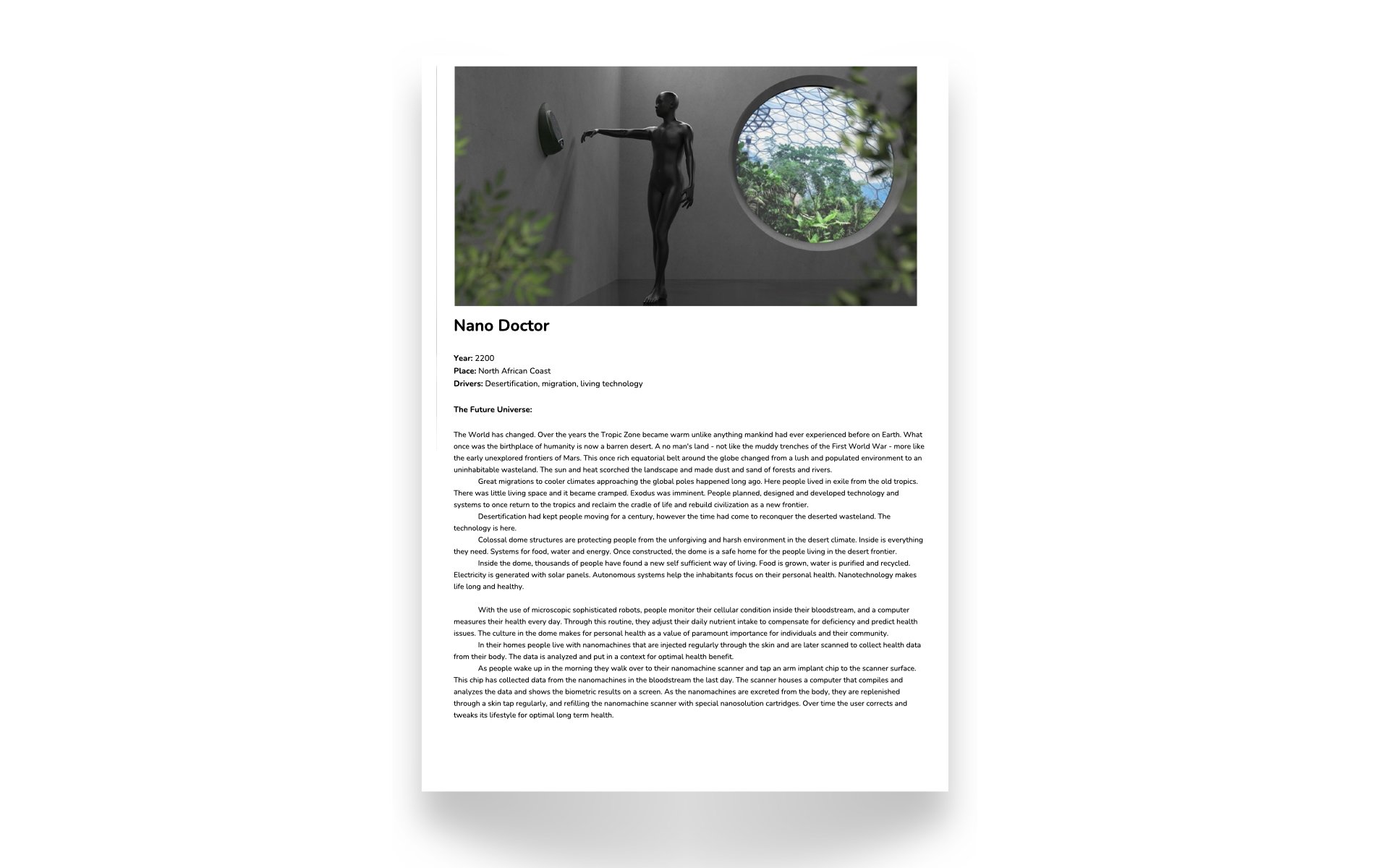
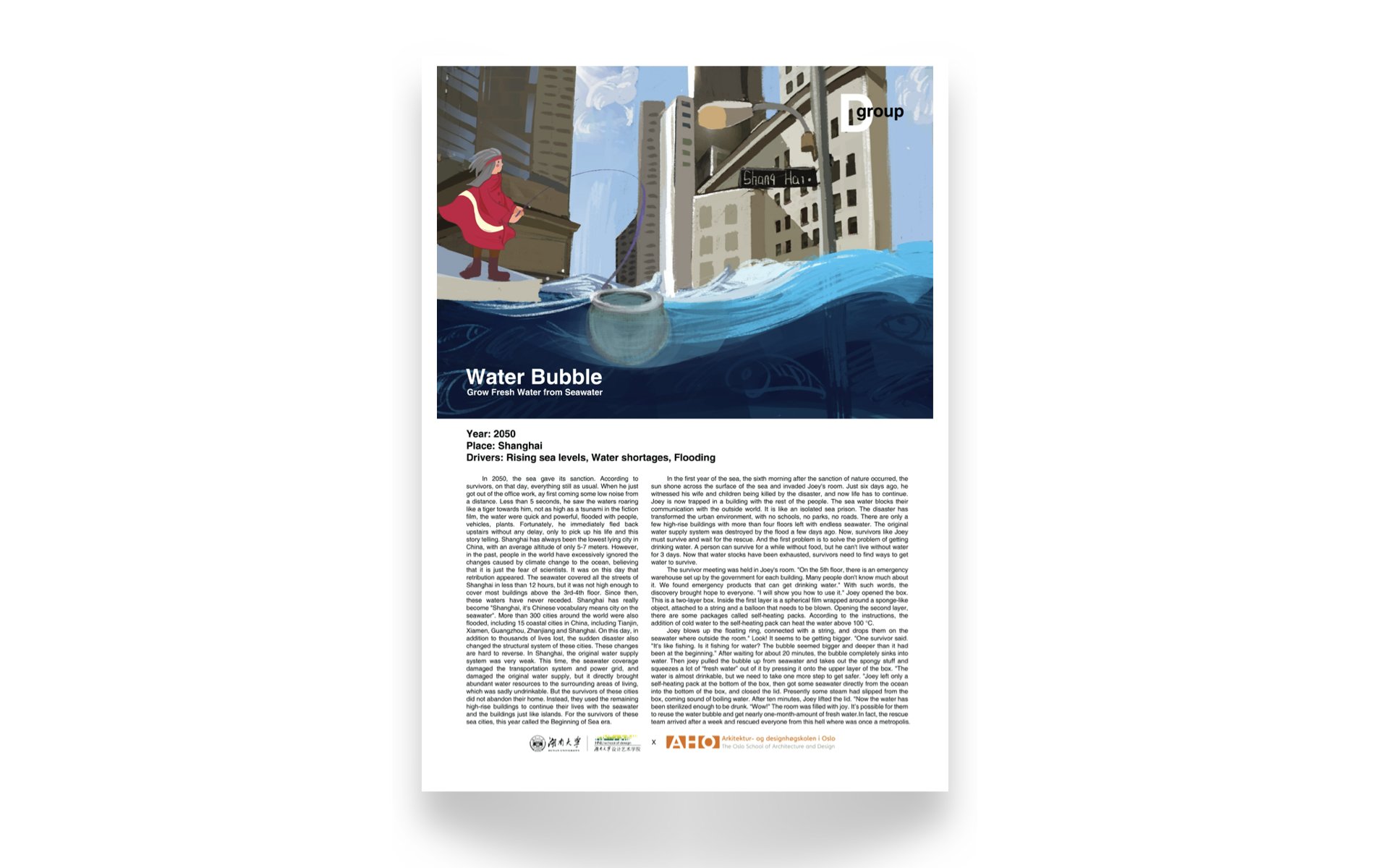
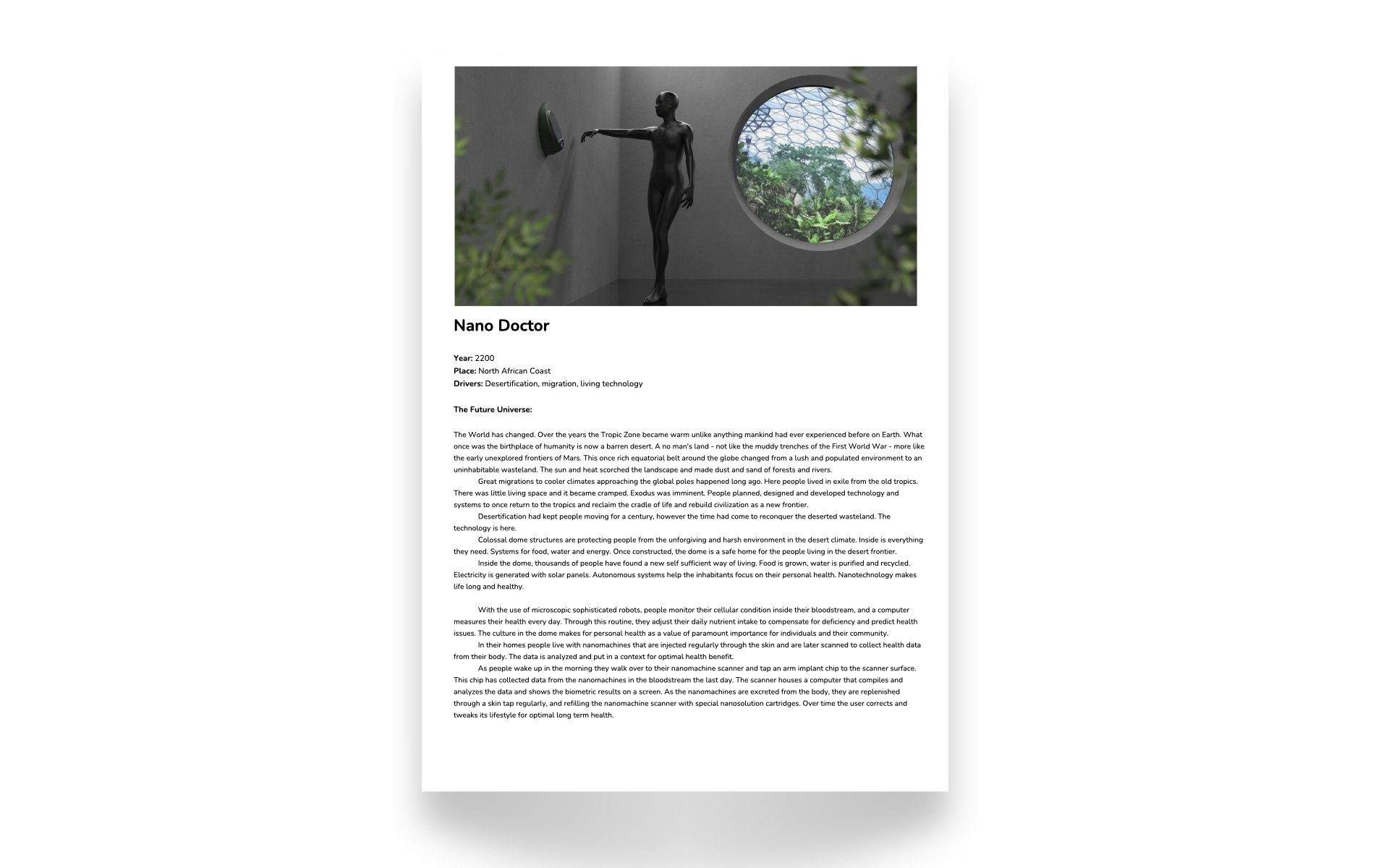
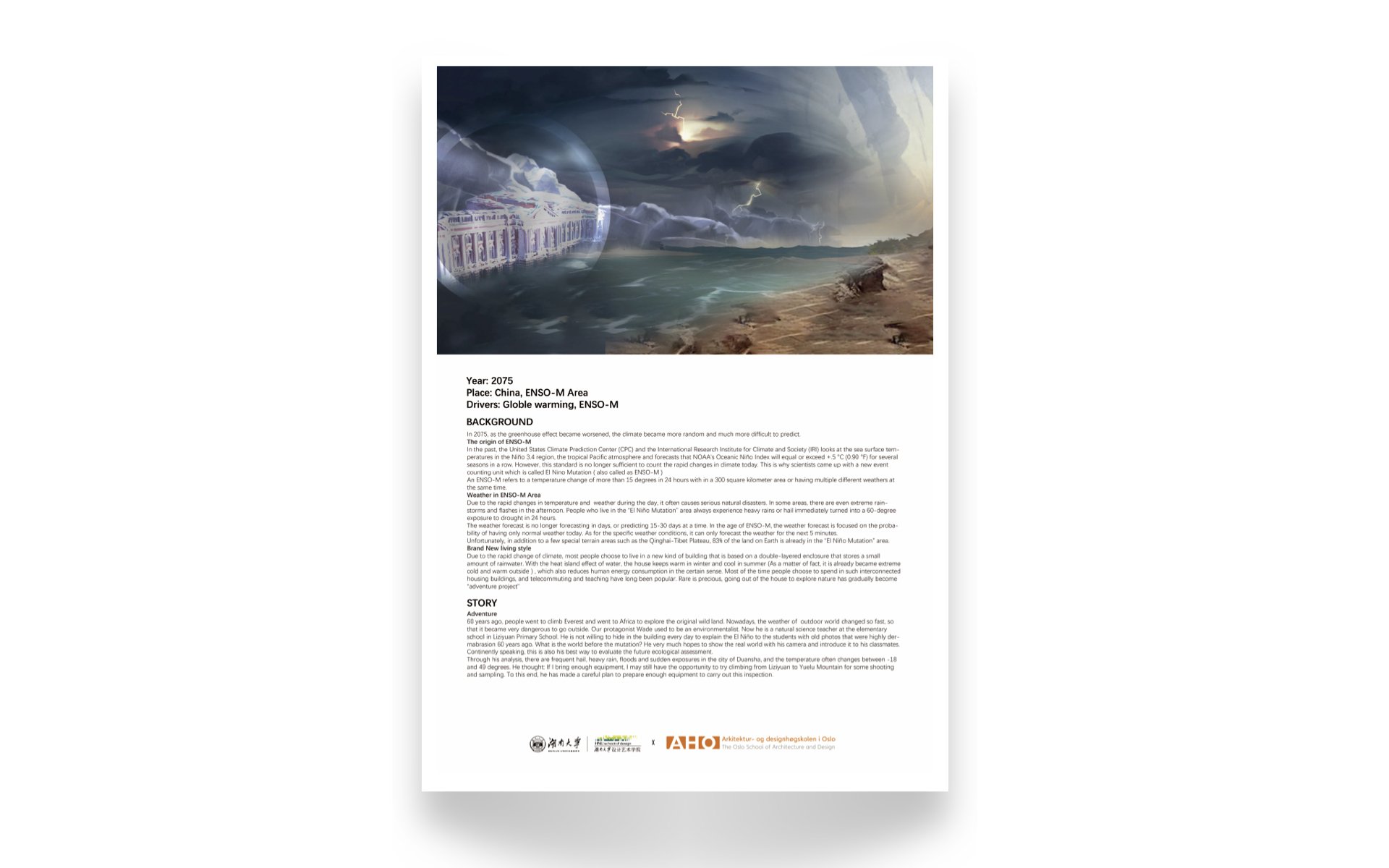

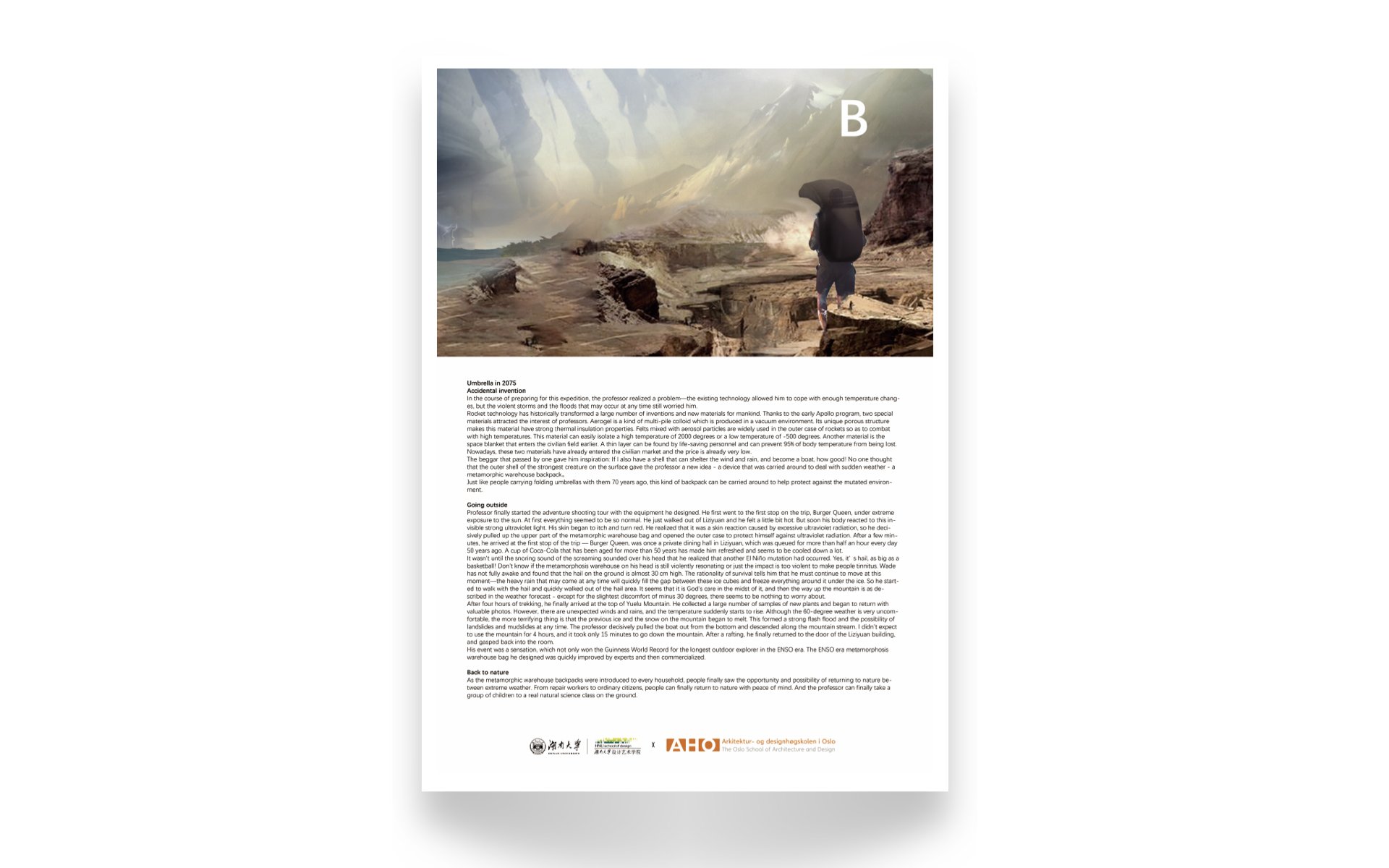
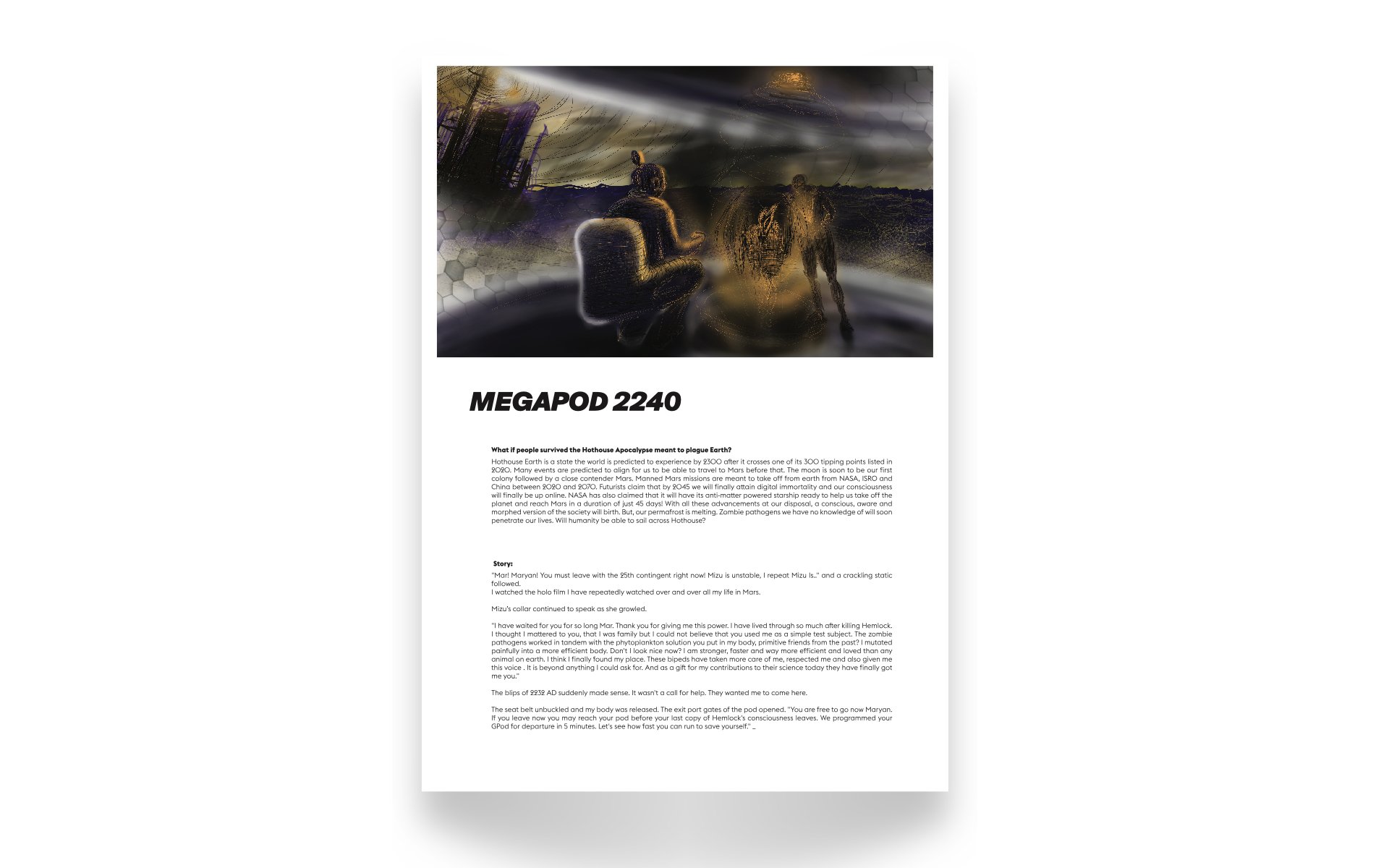
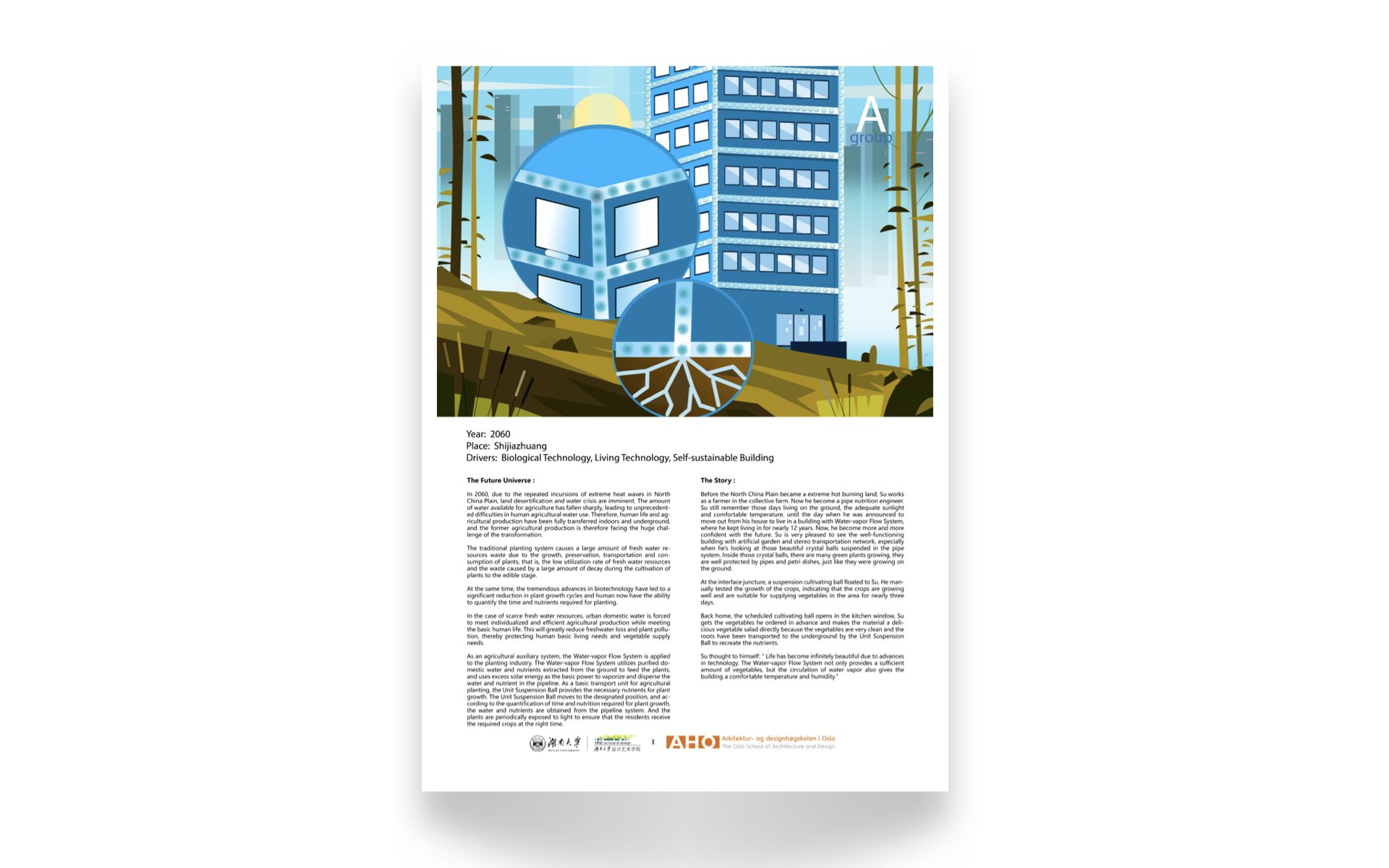
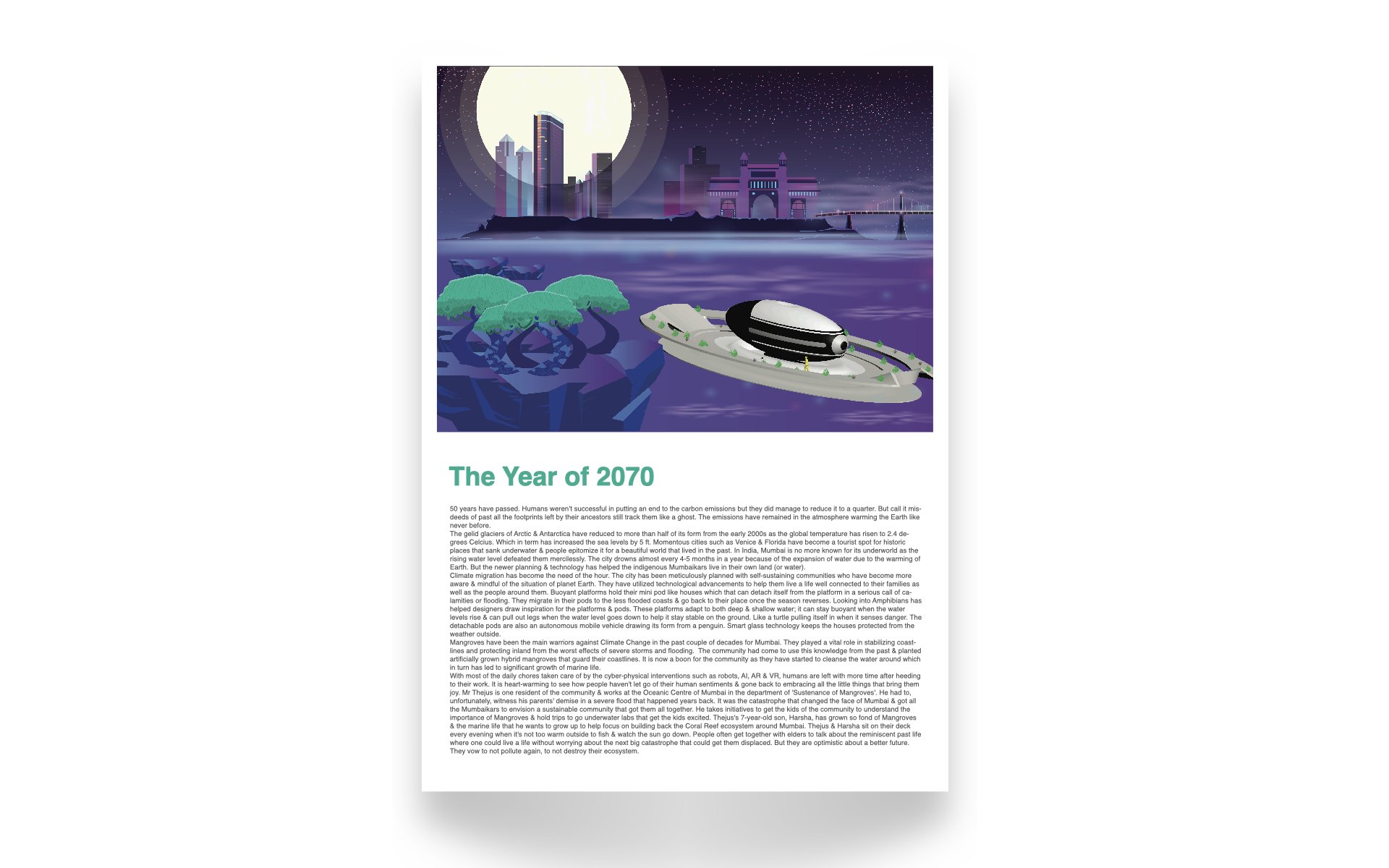
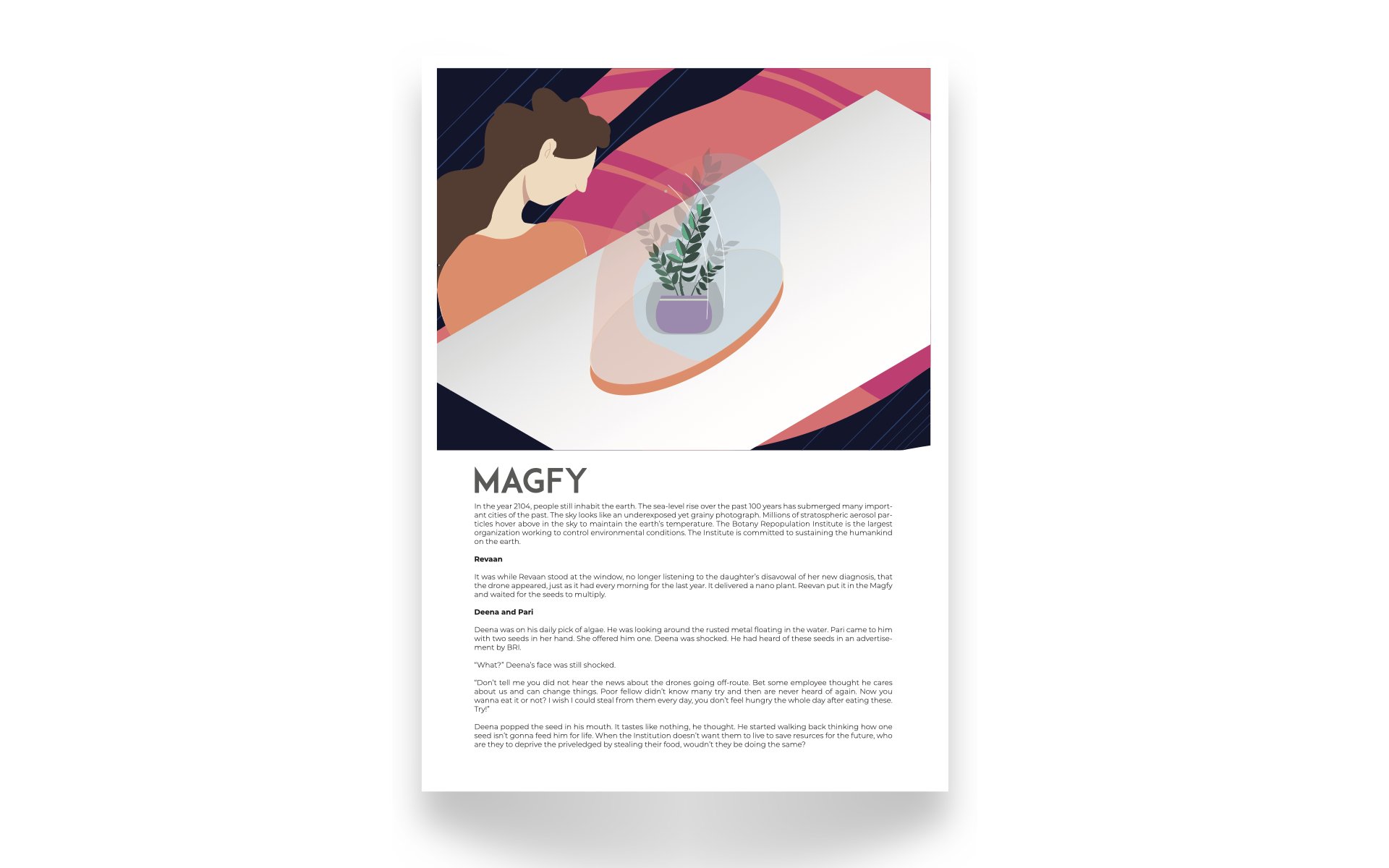







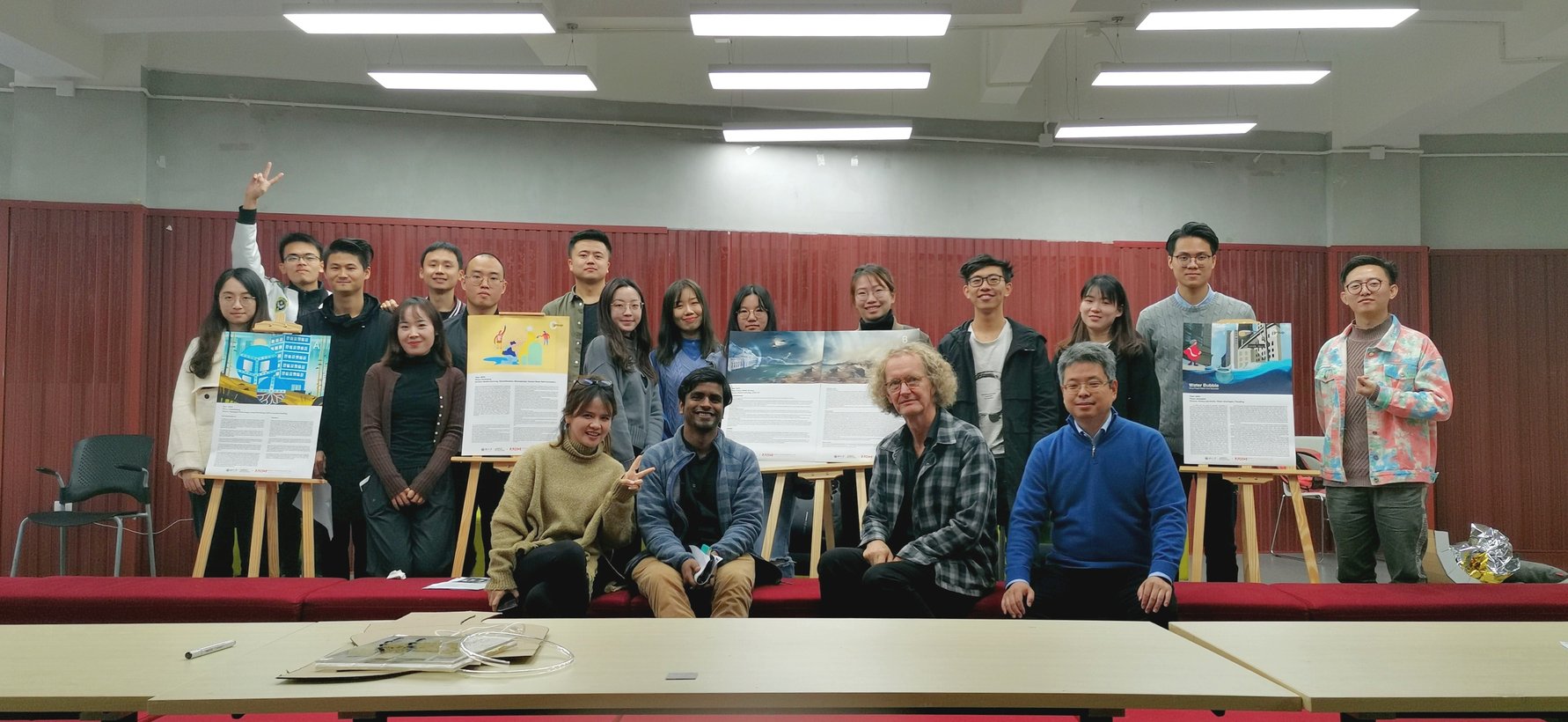

Research Outcomes:
Edeholt, H. (2022) Trapped in Complexity: worlds and the methods they make. RDS 11-Relating System Thinking and Design 2022 Symposium, University of Brighton, Brighton, UK, October 13-16, 2022. Read More
Edeholt, H., Joseph, J., & Xia, N. (2021). Walk the Talk: Towards an ecological futures framework for our designed cultures. Design Culture(s). Cumulus Conference Proceedings Roma 2021, Volume #2, 2, 3863–3877. https://cumulusroma2020.org/proceedings-files/DC(s)_RESILIENCE_track.pdf
Edeholt, H., & Joseph, J. (2022, June). Design disciplines in the age of climate change: Systemic views on current and potential roles, in Lockton, D., Lenzi, S., Hekkert, P., Oak, A., Sádaba, J., Lloyd, P. (eds.),DRS2022: Bilbao, 25 June - 3 July, Bilbao, Spain. https://doi.org/10.21606/drs.2022.365
Joseph, J. (Presented June 2021, June). ReFuturing Studio: Designing long-term sustainability for the biosphere. ACSA Teacher’s Conference. 2021 ACSA/EAAE Teachers Conference: Curriculum for Climate Agency: Design (in)Action, New York, Oslo. Read More
Joseph, J. (2021). The Open Journal of ReFuturing Spring 2131 Centenary English Edition.


